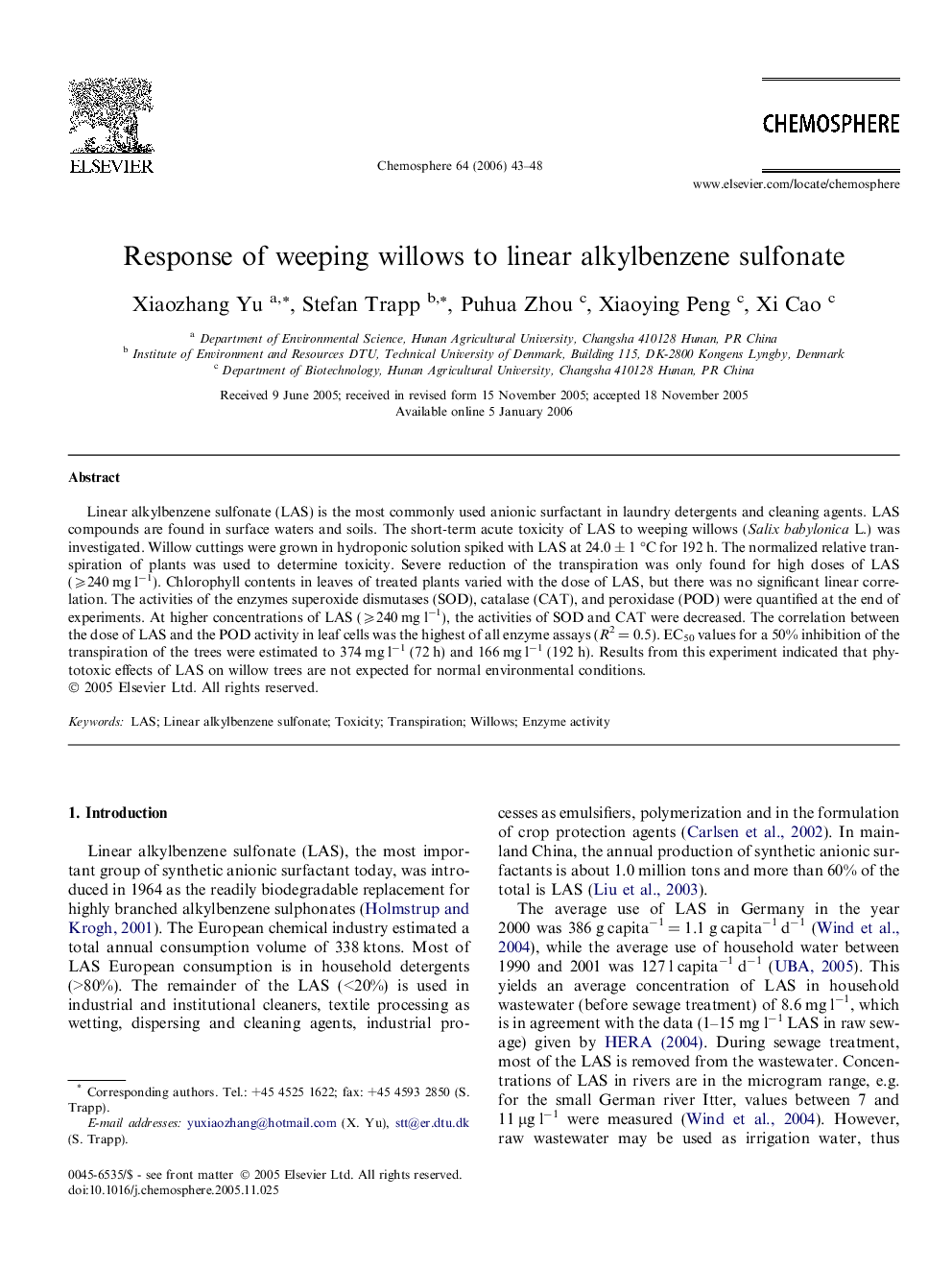| Article ID | Journal | Published Year | Pages | File Type |
|---|---|---|---|---|
| 4416820 | Chemosphere | 2006 | 6 Pages |
Abstract
Linear alkylbenzene sulfonate (LAS) is the most commonly used anionic surfactant in laundry detergents and cleaning agents. LAS compounds are found in surface waters and soils. The short-term acute toxicity of LAS to weeping willows (Salix babylonica L.) was investigated. Willow cuttings were grown in hydroponic solution spiked with LAS at 24.0 ± 1 °C for 192 h. The normalized relative transpiration of plants was used to determine toxicity. Severe reduction of the transpiration was only found for high doses of LAS (⩾240 mg lâ1). Chlorophyll contents in leaves of treated plants varied with the dose of LAS, but there was no significant linear correlation. The activities of the enzymes superoxide dismutases (SOD), catalase (CAT), and peroxidase (POD) were quantified at the end of experiments. At higher concentrations of LAS (⩾240 mg lâ1), the activities of SOD and CAT were decreased. The correlation between the dose of LAS and the POD activity in leaf cells was the highest of all enzyme assays (R2 = 0.5). EC50 values for a 50% inhibition of the transpiration of the trees were estimated to 374 mg lâ1 (72 h) and 166 mg lâ1 (192 h). Results from this experiment indicated that phytotoxic effects of LAS on willow trees are not expected for normal environmental conditions.
Related Topics
Life Sciences
Environmental Science
Environmental Chemistry
Authors
Xiaozhang Yu, Stefan Trapp, Puhua Zhou, Xiaoying Peng, Xi Cao,
